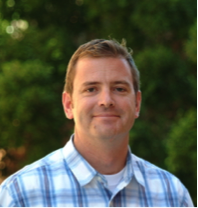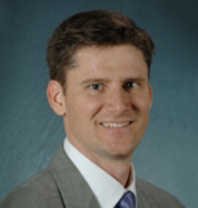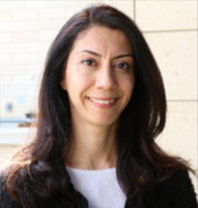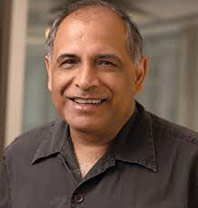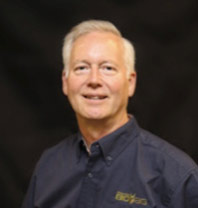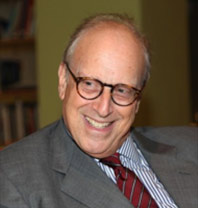October 13-15, 2015
Arizona State University, Tempe
Organizers: John Sabo, Martin Doyle, Upmanu Lall, Pam Matson
Discussion moderators: John Sabo, Martin Doyle, Newsha Ajami
Discussion leads: Upmanu Lall, Tony Michaels, Michael Hanemann
Workshop Agenda
Monday, October 12
5:00-7:00 p.m. Mixer
La Bocca, Urban Pizzeria, 699 S Mill Ave, Tempe, AZ 85281
Tuesday, October 13
Great Hall, Armstrong Hall, Sandra Day O’Connor School of Law, Arizona State University
Link to interactive map of ASU Campus: https://www.asu.edu/map/interactive/
URL for live stream: http://www.ustream.tv/asutv
8:30 a.m. Plenary address
- Guest speaker: Chris Holmes, Deputy Assistant Administrator and Global Water Coordinator, US Agency for International Development
The importance of water for health and food
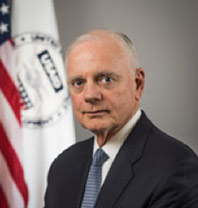 Water is essential to health and food production. Currently, nearly 663 million people lack dependable access to clean water and about 2.4 billion lack access to modern sanitation, putting them at risk of water-related diseases, which can lead to malnutrition and even death. Food production is the largest consumer of water, and also represents the largest unknown factor of future water use as the world population continues to increase. Global population growth projections of two to three billion people over the next 40 years, combined with changing diets, are expected to increase food demand 70 percent by 2050. Our Water and Development Strategy steers USAID’s water programs toward key themes consistent with two of the most important ways we rely on water: water for health and water for food. It is our hope that improvements in WASH programs, and sound management and use of water for food security that is balanced with the need for water for drinking and other uses, will save lives and advance development.
Water is essential to health and food production. Currently, nearly 663 million people lack dependable access to clean water and about 2.4 billion lack access to modern sanitation, putting them at risk of water-related diseases, which can lead to malnutrition and even death. Food production is the largest consumer of water, and also represents the largest unknown factor of future water use as the world population continues to increase. Global population growth projections of two to three billion people over the next 40 years, combined with changing diets, are expected to increase food demand 70 percent by 2050. Our Water and Development Strategy steers USAID’s water programs toward key themes consistent with two of the most important ways we rely on water: water for health and water for food. It is our hope that improvements in WASH programs, and sound management and use of water for food security that is balanced with the need for water for drinking and other uses, will save lives and advance development.
9:30-11:30 a.m. Panel discussion I
FEW systems: Intersection between physically based models, graph theory and data science
- Session moderators: John Sabo & Martin Doyle
- Session lead: Upmanu Lall, Director Columbia Water Center
- Panelist: Auroop Ganguly, Department of Civil and Environmental Engineering, Northeastern University
- Panelist: Yusoon Kim, College of Business, Oregon State University
11:30-1:00 p.m. Lunch
1:00-3:00 p.m. Panel discussion II
FEW technology: Nature inspired technology to enhance FEW system resilience & reliability
- Session moderators: Martin Doyle & Newsha Ajami
- Session lead: Tony Michaels, CEO, Midwestern BioAg, Managing Director, Proteus Environmental Technologies
- Panelist: Giovanna Ghirlanda, School of Molecular Sciences, Arizona State University
- Panelist: Manish Kumar, Department of Chemical Engineering, Pennsylvania State University
3:30-5:30 p.m. Panel discussion III
FEW institutions: Instruments for system transformation
- Session moderators: Newsha Ajami & John Sabo
- Session lead: Michael Hanemann, Director, Center for Environmental Economics and Sustainability Policy, W. P. Carey School of Business, Arizona State University
- Panelist: Caitlin Dyckman, Department of Planning and Landscape Architecture, Clemson University
- Panelist: Sylvie Brouder, Department of Agronomy, Purdue University
- Panelist: Dalia Patino-Echeverri, Nicholas School of the Environment, Duke University
Wednesday, October 14
Cochise Room, Memorial Union Second Floor, Arizona State University
Link to interactive map of ASU Campus: https://www.asu.edu/map/interactive/
8:30 a.m. Opening activity: Lightning round (led by moderators)
9:30-12:00 p.m. Working groups
Composition: Groups of 6-7, focused on a topic (systems, technology, institutions), from within the topic area field
- Goal 1: To outline a discipline specific RFP for a program on the group topic area
12:00-1:30 p.m. Lunch
1:30-3:00 p.m. Working group exchange
Exchange: Will resort working group composition to facilitate reporting, cross pollination of ideas and discovery of multi-disciplinary programs
- Goal 1: To outline an interdisciplinary RFP for a program that builds on, but blends disciplinary discussions from the morning
- Goal 2: To restructure the RFP as a position paper and identify a lead author
3:00-3:30 p.m. Break
3:30-4:00 p.m. Working group exchange
Regroup: Prepare oral summary statement of multidisciplinary program
4:00-5:30 p.m. Report back
Groups will summarize their RFP and idea for position paper
Thursday, October 15
Turquoise Room, Memorial Union, Arizona State University
Link to interactive map of ASU Campus: https://www.asu.edu/map/interactive/
8:30-11:30 a.m. Synthesis & next steps
- Goal 1: Synthesis. List, refine, merge and prioritize RFP concepts. Ultimately, these will go into white paper to be co-authored by all, and submitted to NSF (Sabo will lead this)
- Goal 2: Identify a set of 1-4 topical papers that summarize research needs in FEW systems, appoint lead authors, define 100-word vision of paper, finalize outline and tasks for finishing paper.



